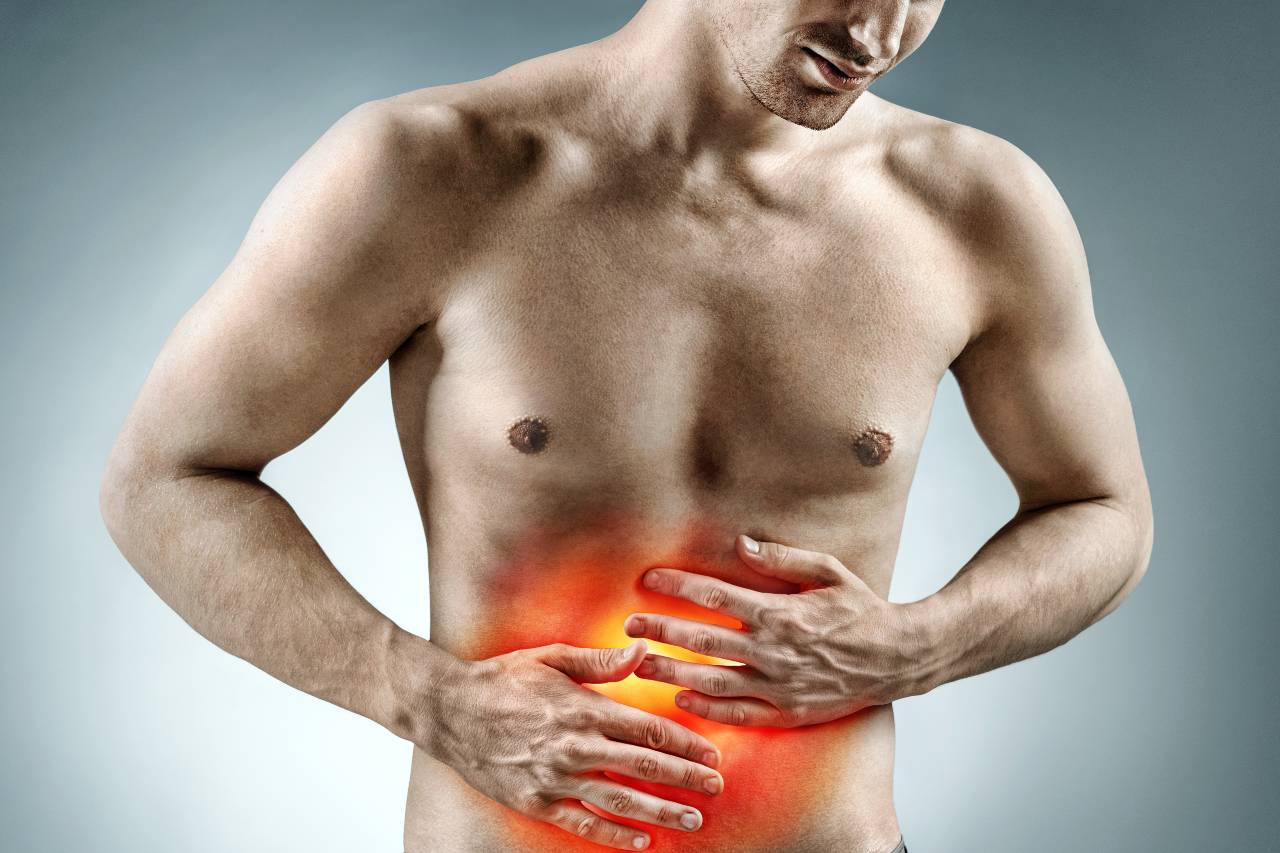What are the most common digestive problems?

Digestive problems are one of the most common consultations in Medicine. Statistics show that half of Spaniards suffer from digestive system pathology.
However, on many occasions, it is easy to confuse its symptoms with those of other diseases and even get used to feeling them until we consider them as something habitual in our body. For this reason, it is essential to differentiate the signs with the most common digestive pathologies in the population, both in Spain and the Canary Islands.
The six most frequent digestive problems in Spain
Although many pathologies affect people’s digestive system, the digestive problems that occur most frequently can be summarised in these five.
Gastroesophageal reflux disease
Gastric or gastroesophageal reflux is heartburn and a burning sensation in the stomach. This is caused by damage to the mucosa of the oesophagus when gastric acids rise again in the opposite direction. This occurs when a muscle at the end of the oesophagus does not close properly when eating food or drinks.
This condition that affects many people is not considered chronic if it is not suffered more than twice a week. In general terms, it is normal to have heartburn or gastric reflux at some time in life. However, what is not normal is to suffer from it continuously. For example, some foods or drinks can cause heartburn,n and, at the same time, many medications are designed to stop this digestive problem. Therefore, the most important thing is to go to the right specialist to treat it effectively. Therefore, self-medication is not recommended in any case.
Indigestion or Dyspepsia
It is another of the most frequent digestive problems. It can present with various symptoms, including nausea, flatulence, abdominal pain and heaviness, sometimes accompanied by gastroesophageal reflux or burning.
This condition can be very annoying and has a high incidence in all ages. It can be caused by multiple causes, from the intake of copious meals to the consumption of medications that produce lesions in the gastric mucosa, such as some anti-inflammatories. Dyspepsia can also be caused by psychological or functional reasons related mainly to stress.
Chronic constipation
Constipation is not considered a pathology but rather a digestive problem that can sometimes be functional, whose cause is not organic but psychological. This is because it is often related to emotions. However, it can also have organic causes such as diverticulosis and tumours that occupy a large part of the intestinal lumen.
IKnowingthe cause that originates, it is essential to treat it effectively. One of the most common pathologies in which chronic constipation usually leads is the formation of haemorrhoids, hemorrhoidal thrombosis or fissures when excessively defecating.
Inflammatory bowel diseases
This type of pathology encompasses various diseases such as Crohn’s, ulcerative, or indeterminate colitis. In any case, the most frequent among them are the first two.
Inflammatory bowel diseases usually present with a wide variety of symptoms, including abdominal pain, sudden changes in bowel movements that can range from constipation to diarrhoea, a feeling of stomach swelling, etc.
Faced with these types of symptoms, it is essential to go to a digestive doctor so that he can make an early diagnosis and thus be able to treat it effectively to prevent its progression into other types of more severe pathologies.
Irritable bowel syndrome and diverticulitis
Other highly prevalent digestive diseases include irritable bowel syndrome (IBS), commonly known as irritable bowel syndrome. This pathology is characterised by a functional disorder of the digestive tube that appears chronically. It is one of the most prevalent digestive problems in the population and typically presents with apparent symptoms of abdominal pain, bloating and constipation or diarrhoea.
For its part, diverticulitis is also another frequent pathology in digestive consultations. It is a digestive disorder caused by diverticulosis. The latter is a formation of bags in the intestinal wall called diverticula that, when infected,d produce fever, severe abdominal pain, nausea and changes in bowel habits.
Fatty liver
Although the general population has never considered fatty liver as a significant disease, the truth is that it is. However, its high prevalence in today’s society due to other pathologies such as obesity makes it want to know about this condition and treat it to prevent other serious diseases such as liver failure or cirrhosis.
Fatty liver is a liver disease that consists of the accumulation of fat in the liver cells. The main problem with this pathology is its symptomatology, that is, the absence of symptoms that alert the individual that they may suffer from it. For this reason, its paramount prevention is maintaining a healthy life with a healthy weight.
Cardiavant Digestive System Unit
In addition to the pathologies described above, there is a disease whose high prevalence makes it the most crucial digestive pathology. It is colon cancer or colorectal cancer . This oncological pathology is the most frequent among cancers in our country and affects both men and women equally.
However, as oncology, it is not a pathology frequently consulted by general practitioners but is usually the result of a set of symptoms detected by specialists.
Leave a Reply
You must be logged in to post a comment.












Leave a Reply